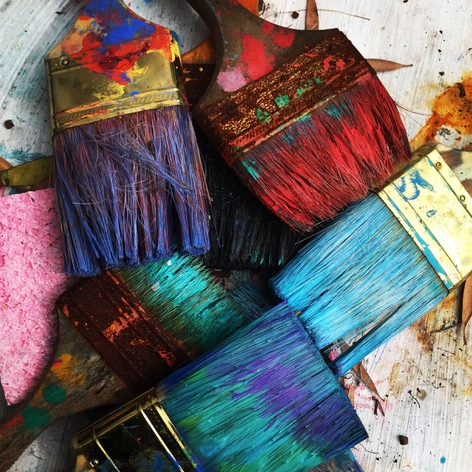Wings Great Yarmouth supports people who have experienced sexual harassment and intimidation. Project member Nadia tells us how members meet up to discuss their experiences and to express themselves through art.

When I was younger, I witnessed domestic violence in my parents’ marriage, and although it’s not something that occurs in my life now, I still live with the effects of what I endured as a child and a teenager. Voice cLoud appealed to me because it approaches domestic violence and negative behaviour in such a creative and unique way to produce something positive through art which is so beneficial.
I’m passionate about supporting people who are going through domestic violence and abuse as well as people who have lived through it in the past to try to lessen the effects on their lives now, not to carry it with them.
We meet fortnightly for a discussion group and to learn different arts. Not everybody in the group has to share – some speak freely, some are guarded – but there are a variety of stories and backgrounds. For example there are trans people who have experienced harassment in their home or in relationships and they’ve not reported it because they don’t think they’ll be taken seriously. There are women who have experienced a range of negative behaviours from harassment to sexual assault. There are men who attend who want to know how they can support women; one member is a brother of a woman who’s in a coercive controlling relationship.
Some people in the group are in abusive situations now and those people don’t share as much because it’s harder for them to express, especially if they are going home to a violent household. Because I’m out of my situation it’s easier to talk about, but it’s also helpful for those people to hear other members like me who have come out of the situations we were in and how we’ve handled it and how we continue to deal with it. Hopefully it inspires them to see that there is a way out.
Arts professionals come in and talk about how they’ve been involved in projects with vulnerable people. Actors came in to talk through some scripts and helped us to read from them, which was effective because we were immersing ourselves in different roles. Sometimes it’s easier for people to express themselves when they don’t have to be themselves.
It’s not necessarily like therapy – it’s a way of interacting without the violence or abuse coming to define us or our lives. It gives the people who are in violent or abusive situations an outlet that they might feel they don’t have when they’re at home.
It’s not necessarily like therapy – it’s a way of interacting without the violence or abuse coming to define us or our lives. It gives the people who are in violent or abusive situations an outlet that they might feel they don’t have when they’re at home.
Nadia
Project Member
An artist came in who helped us draw pieces inspired by our stories, our emotions – not necessarily in the negative but in the positive feelings of having worked through some of our experiences. We made art representing our support of one another and the positive effects the group has had on our lives.
Everything isn’t always necessarily linked to our experiences either. Art gives us different ways to express ourselves.
I like performing so the script work with actors was interesting for me and I found it was most beneficial to me to be able to express my experiences through a character. That resonated with me the most.
Those who aren’t comfortable sharing their stories find the creation of drawings or pieces of art more effective because it’s more personal. Some people don’t like standing up on stage, so different forms appeal to different people and that’s why we have a variety of artists come in to help us represent our emotions and how we feel. For me, the acting has helped me to dissociate feelings of guilt or anger.
The project itself is amazing because we can all connect. Some of us have had therapy and some of us are still in therapy but this is a space where we’re not just looking at ourselves but we’re supporting one another and expressing ourselves in different ways.
Subscribe
Join our email newsletter and stay up to date with our latest funding announcements and policy updates.
